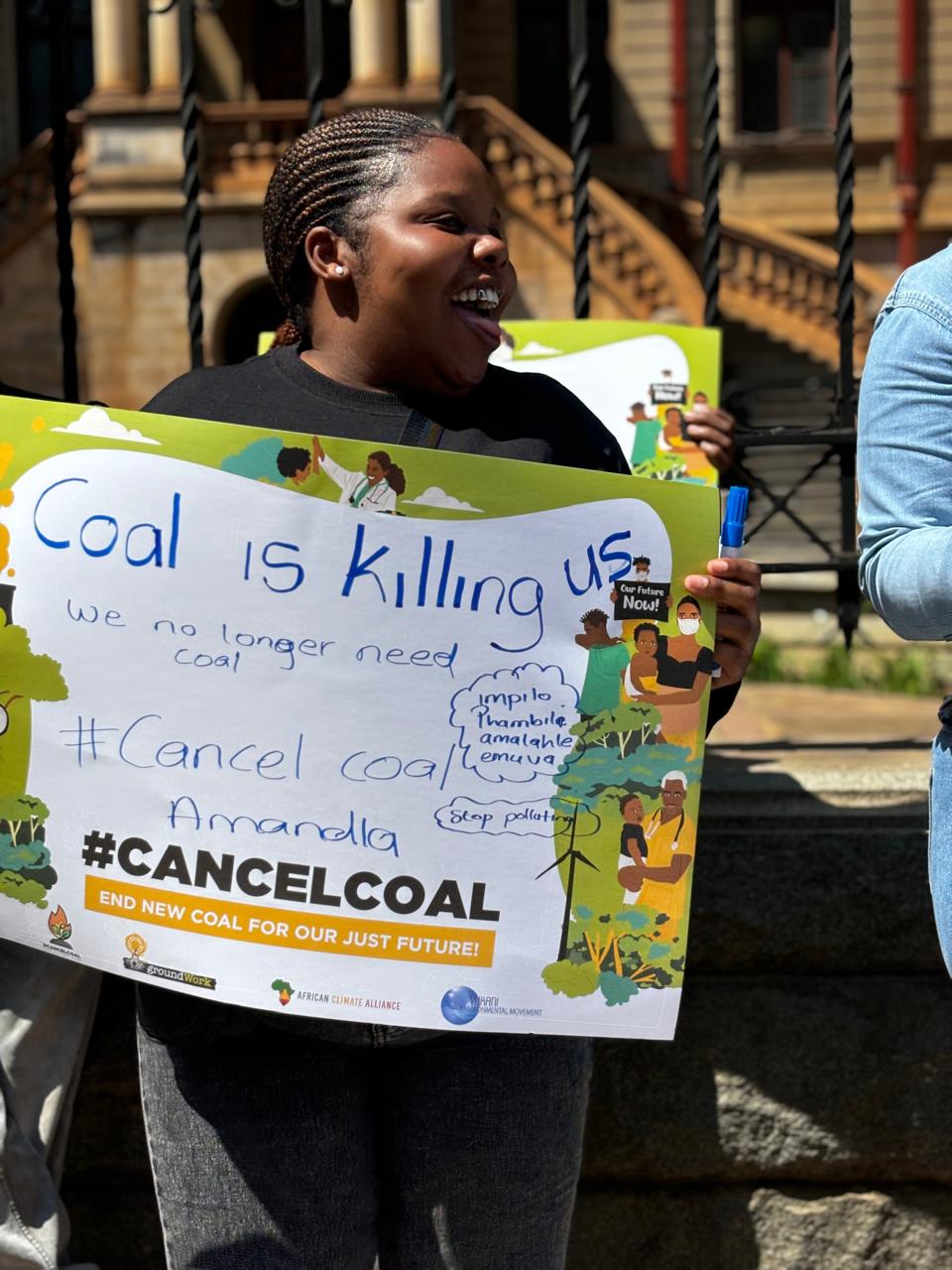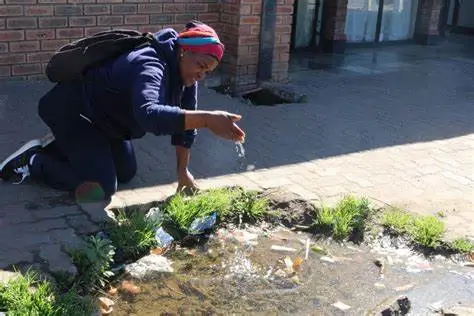Notwithstanding the big talk and plans from the government- and corporate-driven summit circuit, no elite solutions can be found to the current climate change crisis; at least not in this country, whose shocking and enduring inequality is the result of the actions of climate-destroying extractive industries
The 27th UN Conference of the Parties on Climate Change (or COP-27) has just concluded in the ultra-luxury Egyptian resort of Sharm-al-Shaik. The venue of this conference, as well as all other such conferences, points to at least half of what is wrong with such elite junkets.
As expected, COP-27 was an exercise in avoidance and blame-shifting, where the world’s largest fossil fuel polluters, the oil and gas industry, got away scot-free. The Egyptian government was openly striking oil and gas deals on the side lines of what is meant to be an anti-climate change conference. Other fossil fuel-dependent states did the same, each mounting spirited defences of its own poison; coal for India, oil for Saudi Arabia, gas for Russia, and so on.
This, essentially, is the problem with elite conferencing at the primary tool to address the problems caused by the behaviour of the elites themselves.
As the elites of national governments, business and civil society fly around the world to debate ‘The Climate Crisis’, it remains women in rural and peri-urban areas, who play key roles as food producers and caregivers, that ultimately face the reality of this crisis.
Many depend on natural resources for their livelihoods. So extreme climate-related droughts, flooding and other disasters disproportionately impact women’s health, food security and livelihoods.
In places where mining and extractive industries produce greenhouse gases and associated chemicals that cause severe environmental problems, women often bear an unequal share of the social, economic and environmental risk.
Contamination of fertile farmland destroys their livelihoods and forces many women into dependant relationships which exacerbates the pandemic of gender-based violence and femicide. Mining pollution also threatens women’s reproductive health, resulting in higher rates of miscarriage and children born with abnormalities.
Emerging from all these underlying social pathologies, is the realisation that the climate crisis is a direct consequence of the capitalist political economy which produces at least four types of externalisation of costs (or allocation of costs to society), in a process which socialises the costs of doing business but privatises the profits.
The costs to society take the form of an extraction of surpluses, both economic and thermodynamic, as:
1) a social debt to dispossessed host communities
2) a social debt to inadequately paid workers
2) a social debt to women family caregivers; and
3) an ecological debt drawn on nature at large.[1]
Proceeding from the understanding that we cannot solve our problems with the same thinking we used when we created them, it is reasonable to suggest that addressing these problems requires a new paradigm in which we toss out the fatally flawed bias towards economic imperatives of privatised profits and socialising of costs in the ways we assess costs and benefits.
The climate debate should then at the very least lay a foundation to catalyse a genuine just transformation of financing, extraction, production, transport and distribution, consumption, and disposal systems.
A corporate-led or corporate biased, profit oriented, renewable energy system (solar, aggro-fuel and large hydro) which does not present a real alternative to traditional fossil-based energy is already causing large-scale land dispossession and exclusion.
It is rural and working-class women that carry the burden of immediate and long-term impacts of both fossil fuels extraction and energy production, and the false solutions to the climate crisis, including corporatised renewable energy.
Rural women’s health and livelihoods, which are directly affected by the quality of their environment are important entry points to help understand the impact of environmental degradation from climate change.
The issue of climate change is integrally linked to democracy. The link between nature and society manifests through the ways in which large corporations in the Minerals and Energy sector have historically shaped (and continues to shape) the politics and economics of modern South Africa. The extraction of surplus value from exploration, mining, processing, distributing, subsidising and consuming of energy, is often prioritised above the interests of marginalised communities, leaving a legacy of destruction and poverty wherever these activities are carried out.
The interests of large corporations are used to shape legislation that dictates the way in which we live, the way in which we are governed and the way in which we organise our economy, including the way we produce and consume.
An approach to the climate crisis which does not seek to reshape the way that societal priorities are identified and developed, will inevitably lead to a continuation of the very same patterns of extracting surplus value which has devastated the planet and subjected millions to poverty and marginalisation.
A critical focus of our plans to address the climate crisis in a just and equitable way must ensure that global priorities and local realities are able to engage in dialogue which recognises the importance of each. Decisions taken at the local level have a significant contribution to make towards the resolution of the global crisis. But by the same token, decisions that are taken at a global level often have severe consequences at the local level.
Informing, educating and engaging communities that are both marginalised and directly impacted by climate change, are critical to addressing the egregious structural violence that continues to legitimise patterns of disadvantage, such as racial and gender inequality.
To date, despite the high-level hoopla about broad engagements on the Climate Change Bill and Plans around renewal energy projects, the reality is that the process is still essentially an elitist one, which is biased towards private business interests and has failed to produce a different set of economic metrics through which the current crisis response could contribute towards a more just society.
Instead, it is becoming abundantly clear that what is on offer now is deeply corrupted by the same old paradigms that, in South Africa, produced the most unequal society in the world.
[1] Adapted from: Bond, P., 2012. Pambazuka News. [Online]
Available at: https://www.pambazuka.org/governance/inclusive-green-growth-or-extractive-greenwashed-decay






